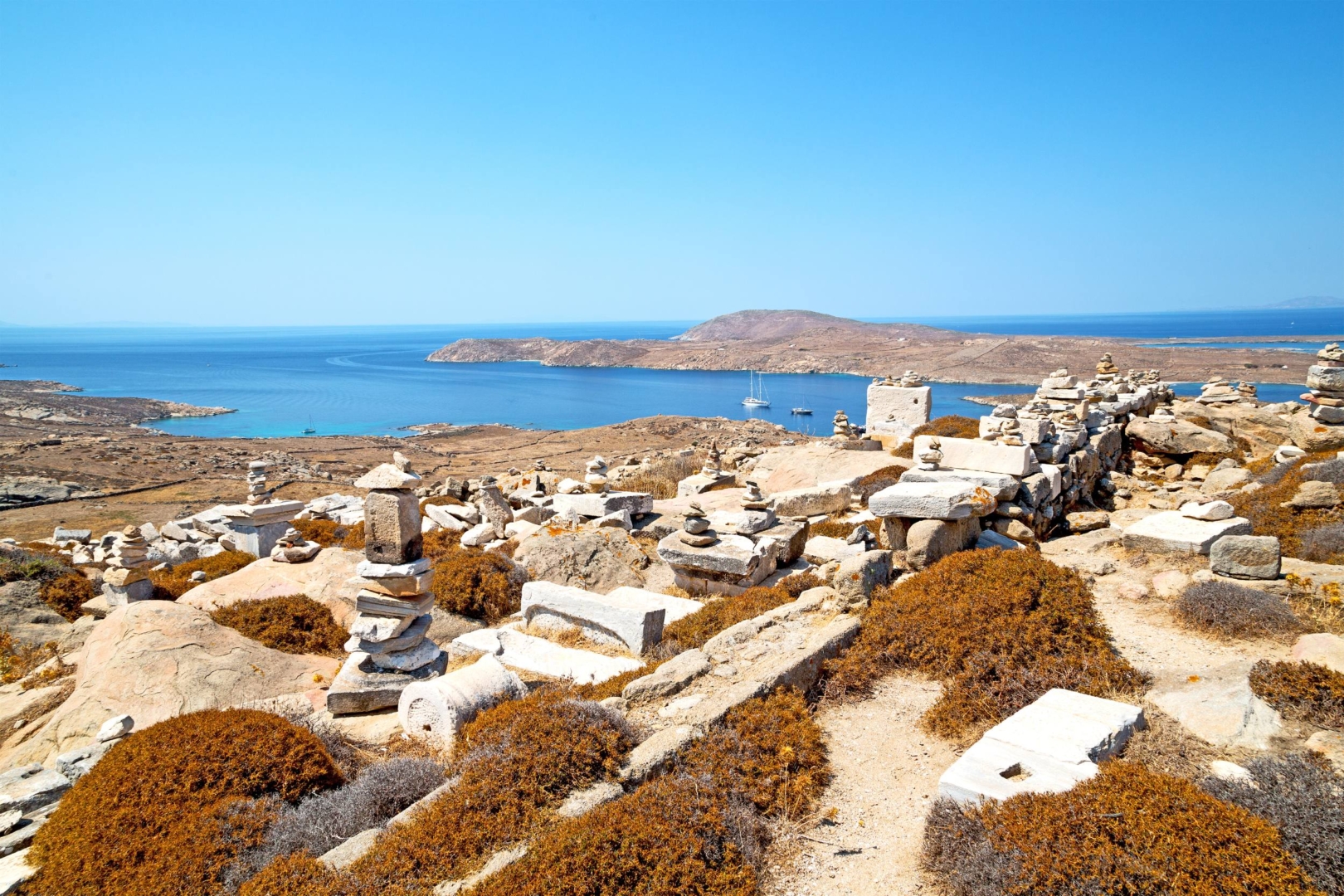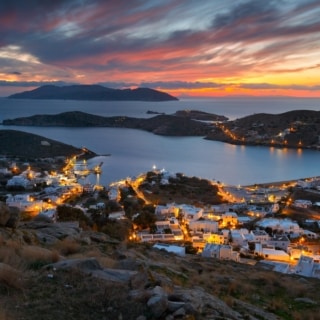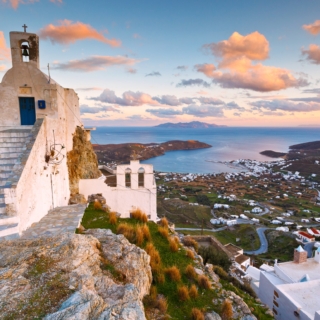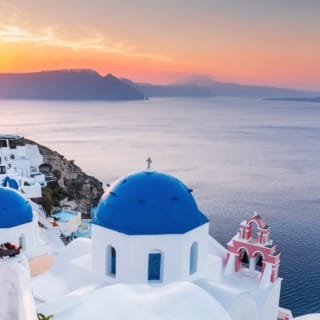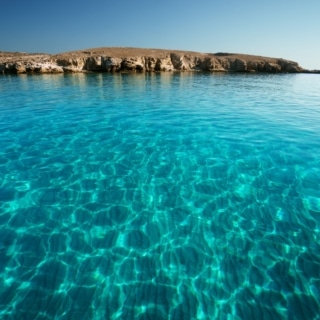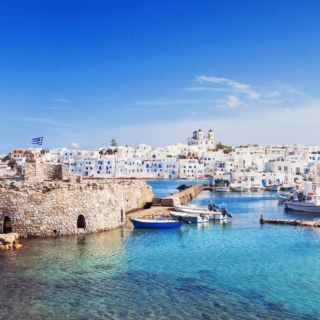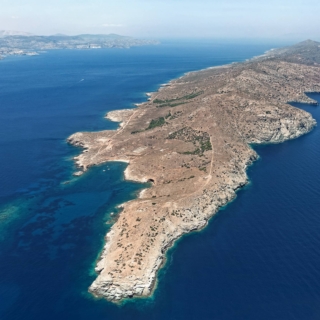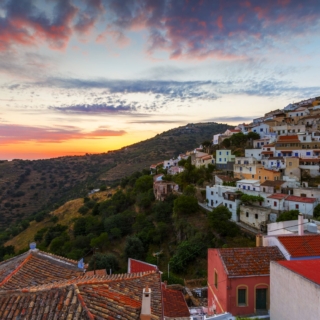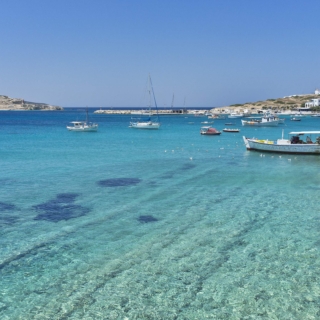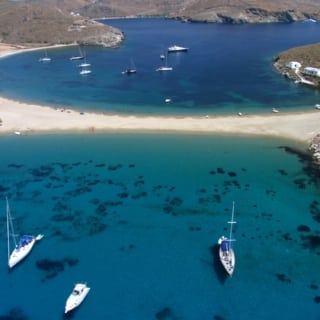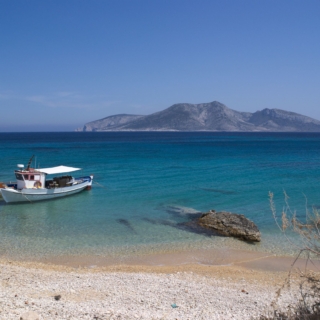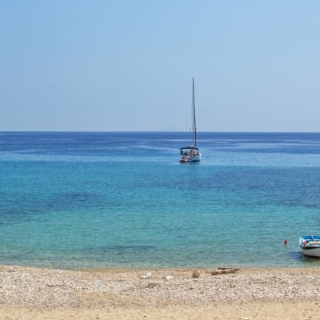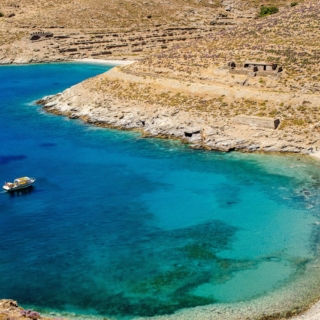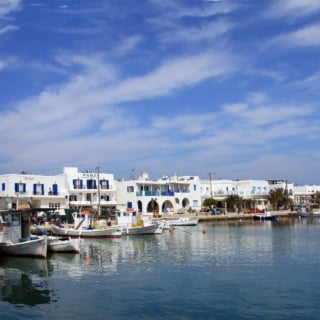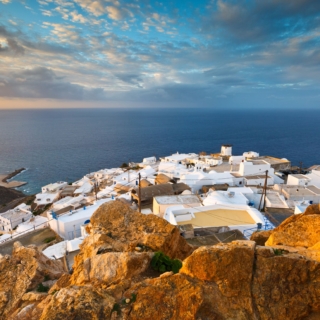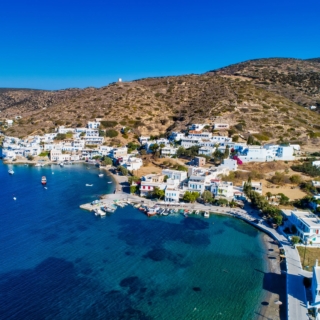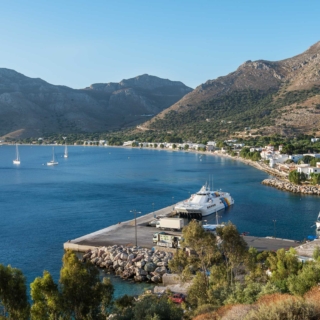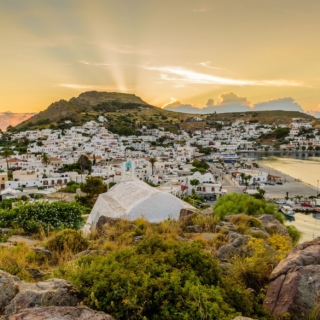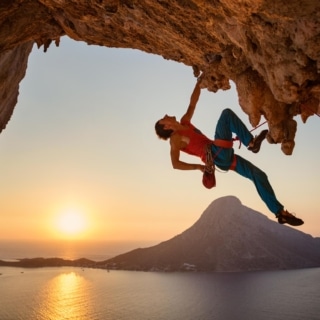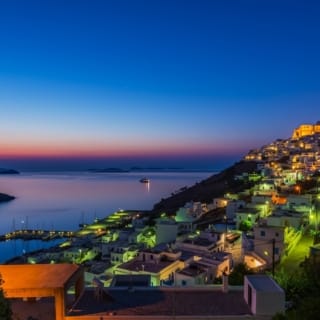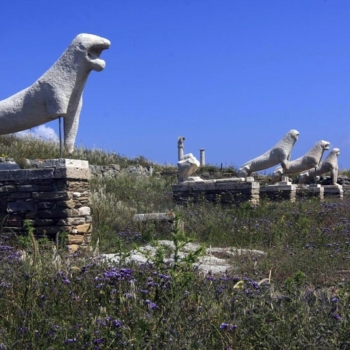Delos is known worldwide as one of the most important and impressive archaeological sites of Greece. The entire island is an archaeological site and has been included on the World Heritage Sites list of UNESCO since 1990. Moreover, it has been an important natural botanical museum with a wide variety of plants for thousands of years.
Although it is one of the smallest islands of the Aegean, it used to be the most famous and the most sacred one during the ancient times because, according to the legend, it was there that Apollo-Sun, god of the daylight, and Artemis-Moon, goddess of the nightlight, were born. So the light that has always been the most precious good for the Greeks was born in Delos.
This little island that is scattered with antiquities is bathed in the insuperable Aegean light and the serenity of this place makes the visitor experience particularly special emotions. There is much more than that though. Delos is a place of reconciliation of nations, something that the visitor will understand by reading the text of the archaeologist P.I. Hatzidakis on the following website: http://odysseus.culture.gr. In the past, people of every race lived on the island in harmony and today people of all ages, from all around the world, flock to Delos to admire the ancient spirit and the creations of man. A journey of knowledge and introspection.
“Circa 90 B.C., about 30,000 people lived on this small island, which is no more than a dot on the map of the Mediterranean. The names inscribed on the tombstones in the ancient cemetery provide us with evidence that apart from the island’s majority of Athenian and Roman residents, Delos was also populated by people from the Peloponnese, from Central and Western Greece, from Macedonia, Thrace, the Black Sea and Asia Minor, from the Aegean Islands, Cyprus and Crete, from Troas, Mysia, Aiolis, Ionia, Lydia, Caria, Lycia, Bithynia, Paflagonia, Pontus, Cappadocia, Pisidia, Pamphilia, Cilicia, Syria, Media, Phoenicia, Palestine, Libya, Arabia and Egypt. All these people managed to forge a peaceable society, adopted the Greek lifestyle and used the Greek language to communicate both orally and in writing, built Greek temples, worked companionably and enjoyed community life, while their children played together, studied at the same Gymnasium and trained in the same Palaestrae.
So, perhaps for the first time in human history, in this small corner of the earth, almost all the Mediterranean peoples co-existed in harmony. The ships that were continuously arriving at the harbors of Delos carried not only merchandise but also people, news and ideas from almost every Mediterranean city. The whole world seemed like a small neighborhood around the Mediterranean at that time…”.
See also www2.egeonet.gr
http://odysseus.culture.gr
